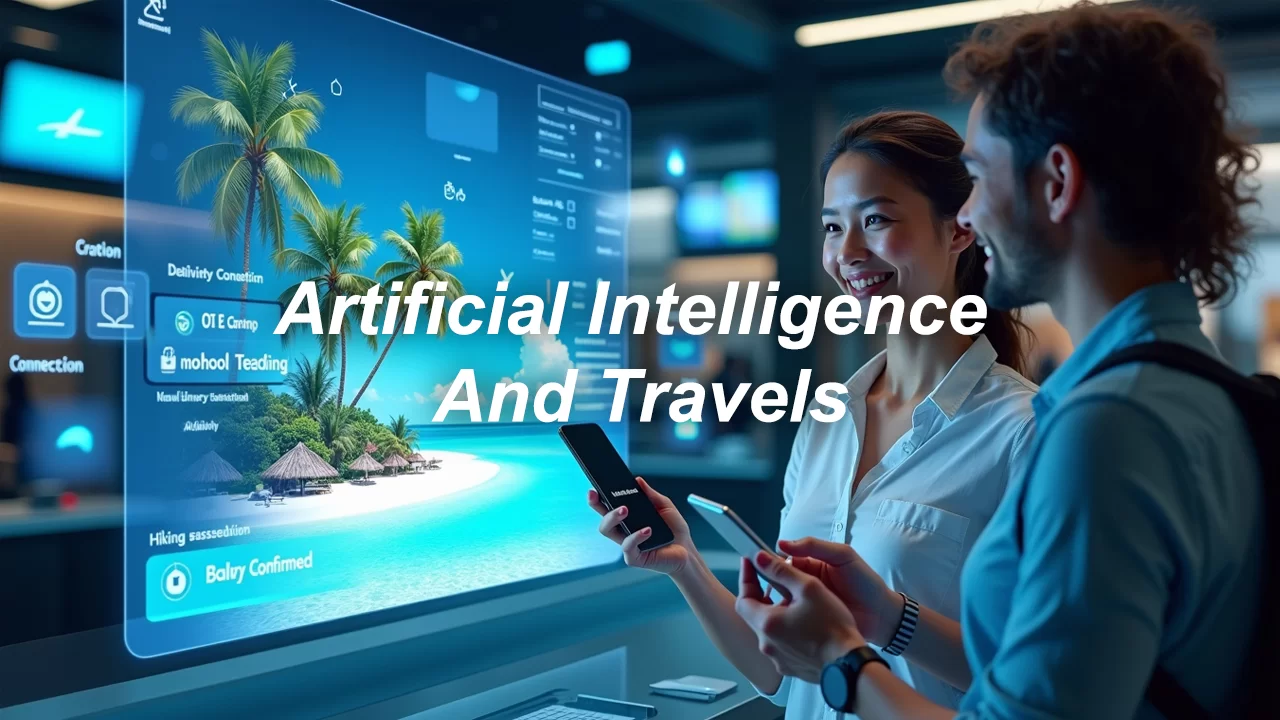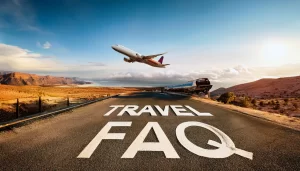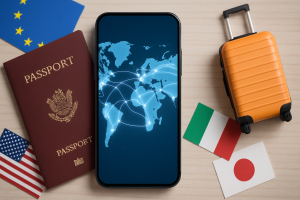AI in Travel Planning – Transforming Holidays and Tourism

The Importance of Artificial Intelligence in Holiday and Travel Planning
Artificial intelligence (AI) has recently become a driving force, revolutionizing many industries worldwide. The use of AI, which has made its presence felt in every aspect of our lives, has become indispensable even in sectors that have not yet established itself.
- Understanding AI in the Travel Industry
- Definition and Core Concepts of AI in Travel
- Evolution of AI Technologies in tourism
- Applications of AI in Holiday Planning
- Personalized Itinerary Generation
- Dynamic Pricing Predictions
- AI-Powered Customer Support and Chatbots
- Real-Time Navigation and Translation Tools
- Benefits for Travelers and Businesses
- Time and Cost Savings
- Improved Travel Safety and Reliability
- Enhanced Sustainability in tourism
- Challenges and Ethical Concerns
- Data Privacy Issues
- Algorithmic Bias in Destination Recommendations
- Over-Reliance on Technology
- Future Trends and Innovations
- Integration with Virtual Reality (VR) and Augmented Reality (AR)
- Voice-Activated Travel Planning
- Predictive Health and Risk Management
The travel and tourism sector is among these. It stands out as one of the sectors most affected by the rapid advancements in AI technologies. With the exponential acceleration of global connectivity and the vast amount of data generated by both travelers and service providers, AI offers unprecedented opportunities to transform vacation and travel planning processes. This transformation is characterized by enhanced personalization, improved efficiency, and smarter decision-making capabilities, enabling travelers to experience trips that better suit their preferences and needs.
Travel planning has traditionally been a complex and time-consuming endeavor, requiring extensive research, comparison, and the navigability of unpredictable situations such as frequently fluctuating prices and last-minute changes. AI offers tools and systems that automate and optimize many of these tasks, from itinerary creation to price prediction and customer support. Leveraging machine learning algorithms, natural language processing, and predictive analytics, AI is improving the overall travel experience for both consumers and businesses in the tourism industry. This article explores the multifaceted role of AI in vacation and travel planning. It examines how AI technologies are being implemented, the benefits they provide, the challenges and ethical concerns they present, and the future trends poised to further shape this dynamic field. Whether you’re a traveler looking for smarter ways to plan your next trip or a business looking to leverage AI for a competitive advantage, understanding the impact of AI in travel planning is crucial.
Understanding AI in the Travel Industry

Definition and Core Concepts of AI in Travel
Artificial intelligence, in the context of travel, refers to computer systems’ ability to perform tasks that normally require human intelligence. These include learning from data, recognizing patterns, making decisions, and even understanding natural language. AI systems in travel analyze vast amounts of information—such as user preferences, booking trends, and environmental factors—to offer recommendations and automate processes. This allows travel companies to provide personalized services at scale and travelers to receive tailored advice quickly.
Evolution of AI Technologies in tourism
The application of AI in tourism has evolved dramatically over the last decade. Early uses of AI were limited to basic automation, such as computerized booking systems and rudimentary recommendation engines. However, advances in machine learning and data analytics have given rise to sophisticated AI applications, including chatbots capable of understanding complex queries, dynamic pricing algorithms adjusting fares in real time, and predictive models forecasting travel demand. These developments have not only streamlined operations but also enriched the traveler’s experience.
Applications of AI in Holiday Planning
Personalized Itinerary Generation
One of the most impactful applications of AI in travel is the ability to generate personalized itineraries based on user preferences, past behavior, and contextual data. AI-powered platforms analyze factors such as a traveler’s interests, budget, travel history, and even real-time conditions like weather or local events to curate optimized travel plans. This personalization helps reduce decision fatigue and increases traveler satisfaction by offering unique experiences aligned with individual tastes.
Dynamic Pricing Predictions
Dynamic pricing is a game-changer in travel economics, and AI plays a central role in this area. By processing historical data and real-time market signals, AI models predict fluctuations in prices for flights, accommodations, and other travel services. This enables travelers to book at optimal times, saving money and avoiding last-minute price surges. Travel businesses also benefit by maximizing revenue and managing demand more effectively.
AI-Powered Customer Support and Chatbots
AI-driven chatbots have revolutionized customer service in the travel industry. Available 24/7, these virtual assistants handle booking inquiries, provide destination information, and resolve issues instantly. Natural language processing allows chatbots to understand and respond to complex questions, improving customer satisfaction and reducing operational costs for businesses.
Real-Time Navigation and Translation Tools
Travelers increasingly rely on AI-powered apps for real-time navigation and language translation. GPS-enabled applications provide live updates on routes, traffic, and transportation options, while AI translation tools break down language barriers, facilitating smoother interactions and enhancing safety. These tools make travel more accessible and less stressful.
Benefits for Travelers and Businesses
Time and Cost Savings
AI significantly reduces the time spent on travel planning by automating research and recommendations. For travelers, this means faster decision-making and access to the best deals. Businesses benefit from optimized pricing strategies and more efficient resource allocation, resulting in increased profitability.
Improved Travel Safety and Reliability
AI systems enhance safety by providing real-time alerts about weather conditions, political unrest, or health advisories. Predictive analytics can anticipate disruptions, allowing travelers and companies to adjust plans proactively. This results in more reliable and secure travel experiences.
Enhanced Sustainability in tourism
Sustainability is becoming a critical consideration in travel, and AI contributes by optimizing routes, accommodations, and activities to minimize environmental impact. AI-driven platforms can recommend eco-friendly options and help manage visitor flows to prevent overtourism.
Challenges and Ethical Concerns
Data Privacy Issues
The effectiveness of AI depends heavily on data access, raising concerns about user privacy and data security. Travel companies must navigate regulations such as GDPR and ensure transparent data handling to maintain traveler trust.
Algorithmic Bias in Destination Recommendations
AI systems may inadvertently perpetuate biases present in their training data, leading to skewed recommendations that favor certain destinations or demographics. Addressing these biases is crucial for fair and inclusive travel planning.
Over-Reliance on Technology
While AI offers many advantages, over-dependence on automated systems can diminish human judgment and flexibility. Travelers and businesses should balance AI tools with personal insights and adaptability.
Future Trends and Innovations
Integration with Virtual Reality (VR) and Augmented Reality (AR)
The future of travel planning includes immersive technologies like VR and AR, allowing users to virtually explore destinations before booking. AI will enhance these experiences by customizing virtual tours and interactive guides.
Voice-Activated Travel Planning
Voice assistants integrated with AI enable hands-free, conversational travel planning. Users can inquire about flights, hotels, or activities using natural speech, making planning more intuitive.
Predictive Health and Risk Management
AI will increasingly aid in assessing health risks, providing personalized recommendations for vaccinations, insurance, and safety measures, especially in a post-pandemic world.
Artificial intelligence is reshaping holiday and travel planning by introducing unprecedented levels of personalization, efficiency, and innovation. From smart itinerary generation to dynamic pricing and real-time support, AI empowers both travelers and businesses to make better decisions and enjoy richer experiences. Despite challenges such as data privacy and ethical considerations, the ongoing advancements in AI promise a future where travel becomes more accessible, sustainable, and enjoyable for all. Embracing AI in travel planning is not just a technological upgrade—it is a strategic imperative that will define the tourism industry’s next era.




